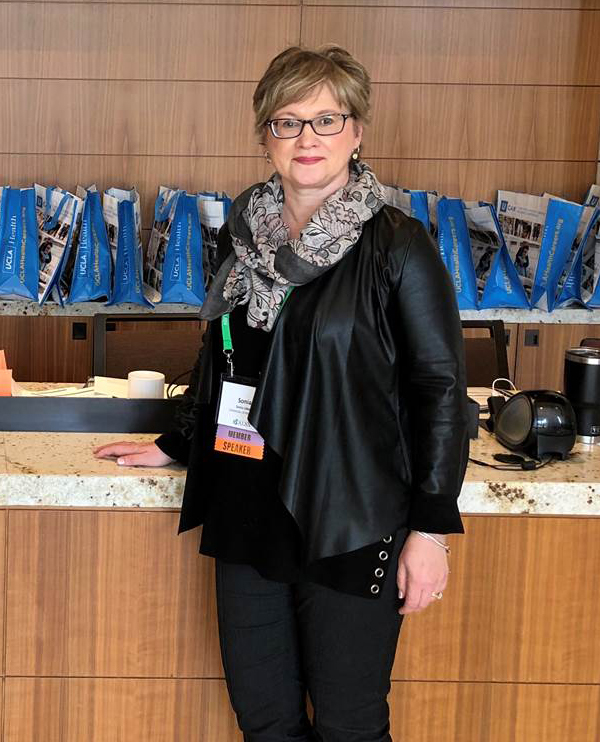Being a frontline hospital nurse during the pandemic has been enormously distressing and draining, says Dr. Sonia Udod.

What about for those in leadership and management positions?
“It’s been really stressful and exhausting to be a leader in COVID, too,” says the assistant professor of nursing, whose research focuses on health-care leadership and nurses’ work environments.
Udod is nearing completion of a study funded by Research Manitoba of how organizational resilience has been activated during the pandemic. She and her team have inter-viewed 25 senior health-care leaders and 15 nurse managers from across Manitoba.
A positive finding is that bureaucratic barriers have often been swept aside during the COVID-19 crisis. There are lessons for the future, Udod says, in how rapidly change has been achieved.
“Health-care systems are very bulky and cumbersome,” she says. “However, because of the need to pivot and be agile, there have been innovations during the pandemic. A lot of the usual red tape, rules, forms and committees have been minimized so nurses can facilitate better outcomes.”
Udod has also found that when nursing leaders show compassionate sup-port for their staff, it builds resilience in the team.
One manager talked about families not being allowed to visit dying patients in the in-tensive care unit because of pandemic restrictions. Nurses were holding iPads so patients could say virtual goodbyes to their loved ones. Then the nurses were taking time to comfort the patients.
“Managers have a lot of administrative responsibilities and are usually not on the unit. But this wonderful manager was on the floor, taking frontline responsibilities so her staff could be with their patients as they passed away. That showed compassion for nurses’ well-being.”
Udod, who is originally from Saskatchewan, has a background in surgical nursing. She joined UM from the University of Saskatchewan in 2017. With a colleague at McMaster University, Dr. Pamela Baxter, she co-leads a research program focused on building the capacity of nurse leaders.
She has co-led recent studies, published in the Journal of Nursing Management, on using a patient assessment framework called the “synergy tool” to create staffing guidelines based on categorizing patients’ needs.
“This tool offers a way to better align nurses’ skills with patient needs. When it was used in emergency departments in Regina, staffing gaps were identified and more nurses were hired.”
Udod has another current study looking at what leadership competencies are needed to direct organizational change. She says the post-COVID “new normal” will require health-care leaders to address, at the organizational level, poor mental health and high rates of burnout among nurses.
The province has announced funding for the College of Nursing to create 120 more seats for nursing students, possibly as soon as 2023.
“The nursing shortage is telling us that we’ll need to grow some of our own faculty for the College of Nursing, as well as leaders for the health-care system,” Udod says.
“I love teaching in the master’s program and I’m really excited about helping potential leaders understand how to work with teams, advocate for what they need and support their staff.”
BY ALISON MAYES
